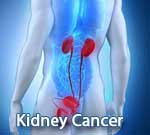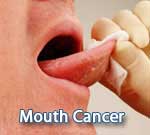Prostate Cancer
Treatment and Diagnosis:
If you have a symptom or test result that suggests cancer, your doctor must find out whether it is due to cancer or to some other cause. Your doctor will ask about your personal and family medical history. You will have a physical exam. You may have lab tests. Your visit may include a digital rectal exam, a urine test to check for blood or infection, and a blood test to measure PSA level.
You also may have other exams:
- Transrectal ultrasound: The doctor inserts a probe into the man's rectum to check for abnormal areas. The probe sends out sound waves that people cannot hear (ultrasound). The waves bounce off the prostate. A computer uses the echoes to create a picture called a sonogram.
- Cystoscopy: The doctor uses a thin, lighted tube to look into the urethra and bladder.
- Transrectal biopsy: A biopsy is the removal of tissue to look for cancer cells. It is the only sure way to diagnose prostate cancer. The doctor inserts a needle through the rectum into the prostate. The doctor takes small tissue samples from many areas of the prostate. Ultrasound may be used to guide the needle. A pathologist checks for cancer cells in the tissue.
You may want to ask the doctor these questions before having a biopsy:
- Where will the biopsy take place? Will I have to go to the hospital?
- How long will it take? Will I be awake? Will it hurt?
- What are the risks? What are the chances of infection or bleeding after the biopsy?
- How long will it take me to recover?
- How soon will I know the results?
- If I do have cancer, who will talk to me about the next steps? When?
If Cancer Is Not Found
If the physical exam and test results do not suggest cancer, your doctor may suggest medicine to reduce symptoms caused by an enlarged prostate. Surgery also can relieve these symptoms. The surgery most often used in such cases is transurethral resection of the prostate (TURP or TUR). In TURP, an instrument is inserted through the urethra to remove prostate tissue that is pressing against the upper part of the urethra and restricting the flow of urine. You should talk to your doctor about the best treatment option.
If Cancer Is Found
If cancer is present, the pathologist studies tissue samples from the prostate under a microscope to report the grade of the tumor. The grade tells how much the tumor tissue differs from normal prostate tissue. It suggests how fast the tumor is likely to grow. Tumors with higher grades tend to grow faster than those with lower grades. They are also more likely to spread.
One system of grading prostate cancer uses G1 through G4. Another way of grading is with the Gleason score. The pathologist gives each area of cancer a grade of 1 through 5. The pathologist adds the two most common grades together to make a Gleason score. Or the pathologist may add the most common grade and the highest (most abnormal) grade to get the score. Gleason scores can range from 2 to 10
Staging
To plan your treatment, your doctor needs to know the extent (stage) of the disease. The stage is based on the size of the tumor, whether the cancer has spread outside the prostate and, if so, where it has spread.
You may have blood tests to see if the cancer has spread. Some men also may need imaging tests:
- Bone scan: The doctor injects a small amount of a radioactive substance into a blood vessel. It travels through the bloodstream and collects in the bones. A machine called a scanner detects and measures the radiation. The scanner makes pictures of the bones on a computer screen or on film. The pictures may show cancer that has spread to the bones.
- CT scan: An x-ray machine linked to a computer takes a series of detailed pictures of areas inside your body. Doctors often use CT scans to see the pelvis or abdomen.
- MRI: A strong magnet linked to a computer is used to make detailed pictures of areas inside your body.
These are the stages of prostate cancer:
- Stage I: The cancer cannot be felt during a digital rectal exam. It is found by chance when surgery is done for another reason, usually for BPH. The cancer is only in the prostate.
- Stage II: The cancer is more advanced, but it has not spread outside the prostate.
- Stage III: The cancer has spread outside the prostate. It may be in the seminal vesicles. It has not spread to the lymph nodes.
- Stage IV: The cancer may be in nearby muscles and organs (beyond the seminal vesicles). It may have spread to the lymph nodes. It may have spread to other parts of the body.
Recurrent cancer is cancer that has come back (recurred) after a time when it could not be detected. It may recur in or near the prostate. Or it may recur in any other part of the body, such as the bones
Treatment
- Getting a Second Opinion
- Treatment Methods
- Surgery
- Radiation Therapy
- Hormone Therapy
- Watchful Waiting
Many men with prostate cancer want to take an active part in making decisions about their care. It is natural to want to learn all you can about prostate cancer and your treatment choices. However, shock and stress after the diagnosis can make it hard to think of everything you want to ask your doctor. It often helps to make a list of questions before an appointment.
To help remember what the doctor says, you may take notes or ask whether you may use a tape recorder. You may also want to have a family member or friend with you when you talk to the doctor - to take part in the discussion, to take notes, or just to listen.
You do not need to ask all your questions at once. You will have other chances to ask your doctor or nurse to explain things that are not clear and to ask for more details.
Your doctor may refer you to a specialist, or you may ask for a referral. Specialists who treat prostate cancer include urologists, urologic oncologists, medical oncologists, and radiation oncologists.
Getting a Second Opinion
Before starting treatment, you might want a second opinion about your diagnosis and treatment plan. Many insurance companies cover a second opinion if you or your doctor requests it. It may take some time and effort to gather medical records and arrange to see another doctor. Usually it is not a problem to take several weeks to get a second opinion. In most cases, the delay in starting treatment will not make treatment less effective. To make sure, you should discuss this delay with your doctor. Some men with prostate cancer need treatment right away.
There are a number of ways to find a doctor for a second opinion:
Your doctor may refer you to one or more specialists. At cancer centers, several specialists often work together as a team.
A local or state medical society, a nearby hospital, or a medical school can usually provide the names of specialists.
Treatment Methods
Men with prostate cancer have many treatment options. The treatment that is best for one man may not be best for another.
Treatment may involve surgery, radiation therapy, or hormone therapy. You may have a combination of treatments. If your doctor recommends watchful waiting, your health will be monitored closely. You will have treatment only if symptoms occur or get worse.
Cancer treatment is either local therapy or systemic therapy:
- Local therapy: Surgery and radiation therapy are local treatments. They remove or destroy cancer in the prostate. When prostate cancer has spread to other parts of the body, local therapy may be used to control the disease in those specific areas.
- Systemic therapy: Hormone therapy is systemic therapy. Hormones are given to control cancer that has spread.
The treatment that is right for you depends on the stage of the cancer, the grade of the tumor, your symptoms, and your general health. Your doctor will describe your treatment choices and the expected results.
Because cancer treatments often damage healthy cells and tissues, side effects are common. Side effects depend mainly on the type and extent of the treatment. Side effects may not be the same for each man, and they may change from one treatment session to the next.
You should consider both the expected benefits and possible side effects of each treatment option. You may want to discuss with your doctor the possible effects on sexual activity. You can work with your doctor to create a treatment plan that reflects
You may want to ask your doctor these questions before your treatment begins:
- What is the stage of the disease? Do any lymph nodes show signs of cancer? Has the cancer spread?
- What is the grade of the tumor?
- What is the goal of treatment? What are my treatment choices? Which do you recommend for me? Why?
- What are the expected benefits of each kind of treatment?
- What are the risks and possible side effects of each treatment? How can side effects be managed?
- What can I do to prepare for treatment?
- Will I need to stay in the hospital? If so, for how long?
- How will treatment affect my normal activities? Will it affect my sex life? Will I have urinary problems? Will I have bowel problems?
- What will the treatment cost? Will my insurance cover it?
- Would a clinical trial (research study) be appropriate for me?
Surgery
Surgery is a common treatment for early stage prostate cancer. Your doctor may remove the whole prostate or only part of it. In some cases, your doctor can use a method known as nerve-sparing surgery. This type of surgery may save the nerves that control erection. But if you have a large tumor or a tumor that is very close to the nerves, you may not be able to have this surgery.
Each type of surgery has benefits and risks. Your doctor can further describe these types:
- Radical retropubic prostatectomy: The doctor removes the entire prostate and nearby lymph nodes through an incision (cut) in the abdomen.
- Radical perineal prostatectomy: The doctor removes the entire prostate through a cut between the scrotum and the anus. Nearby lymph nodes may be removed through a separate cut in the abdomen.
- Laparoscopic prostatectomy: The doctor removes the entire prostate and nearby lymph nodes through small incisions, rather than a single long cut in the abdomen. A thin, lighted tube (a laparoscope) is used to help remove the prostate.
- Transurethral resection of the prostate (TURP): The doctor removes part of the prostate with a long, thin device that is inserted through the urethra. The cancer is cut from the prostate. TURP may not remove all of the cancer. But it can remove tissue that blocks the flow of urine.
- Cryosurgery: This type of surgery for prostate cancer is under study at some medical centers.
- Pelvic lymphadenectomy: This is routinely done during prostatectomy. The doctor removes lymph nodes in the pelvis to see if cancer has spread to them. If there are cancer cells in the lymph nodes, the disease may have spread to other parts of the body. In this case, the doctor may suggest other types of treatment.
The time it takes to heal after surgery is different for each man and depends on the type of surgery he has had. You may be uncomfortable for the first few days. However, medicine can help control the pain. Before surgery, you should discuss the plan for pain relief with your doctor or nurse. After surgery, your doctor can adjust the plan if you need more pain relief.
After surgery, the urethra needs time to heal. You will have a catheter. A catheter is a tube put through the urethra into the bladder to drain urine. You will have the catheter for 5 days to 3 weeks. Your nurse or doctor will show you how to care for it.
Surgery may cause short-term problems, such as incontinence. After surgery, some men may lose control of the flow of urine (urinary incontinence). Most men regain bladder control after a few weeks.
Some men may become impotent. Nerve-sparing surgery is an attempt to avoid the problem of impotence. If a man can have nerve-sparing surgery and the operation is a success, impotence may not last. In some cases, men become permanently impotent. You can talk with your doctor about medicine and other ways to help manage the sexual effects of cancer treatment.
If your prostate is removed, you will no longer produce semen. You will have dry orgasms. If you wish to father children, you may consider sperm banking or a sperm retrieval procedure.
You may want to ask your doctor these questions before choosing surgery:
- What kinds of surgery can I consider? Is nerve-sparing surgery an option for me? Which operation do you recommend for me? Why?
- How will I feel after the operation?
- If I have pain, how can we control it?
- Will I have any lasting side effects?
- Is there someone I can talk with who has had the same surgery I'll be having?
Radiation Therapy
Radiation therapy (also called radiotherapy) uses high-energy rays to kill cancer cells. It affects cells only in the treated area.
For early stage prostate cancer, radiation treatment may be used instead of surgery. It also may be used after surgery to destroy any cancer cells that remain in the area. In later stages of prostate cancer, radiation treatment may be used to help relieve pain.
Doctors use two types of radiation therapy to treat prostate cancer. Some men receive both types:
- External radiation: The radiation comes from a large machine outside the body. Men go to a hospital or clinic for treatment. Treatments are usually 5 days a week for several weeks. Many men receive 3-dimensional conformal radiation therapy. This type of treatment more closely targets the cancer. It spares healthy tissue.
- Internal radiation (implant radiation therapy or brachytherapy): The radiation comes from radioactive material usually contained in small seeds. The seeds are put into the tissue. They give off radiation for months. The seeds are harmless and do not need to be removed.
Side effects depend mainly on the dose and type of radiation. You are likely to be very tired during radiation therapy, especially in the later weeks of treatment. Resting is important, but doctors usually advise patients to try to stay as active as they can.
If you have external radiation, you may have diarrhea or frequent and uncomfortable urination. Some men have lasting bowel or urinary problems. Your skin in the treated area may become red, dry, and tender. You may lose hair in the treated area. The hair may not grow back.
Internal radiation treatment may cause incontinence. This side effect usually goes away. Lasting side effects from internal radiation are not common.
Both internal and external radiation can cause impotence. Internal radiation is less likely to have this effect.
You may want to ask your doctor these questions before choosing radiation therapy:
- How will radiation be given?
- When will treatment start? When will it end? How often will I have treatments?
- What can I do to take care of myself before, during, and after treatment?
- How will I feel during treatment? Will I be able to drive myself to and from treatment?
- How will we know the treatment is working?
- How will I feel after the radiation?
- Are there any lasting effects?
- What is the chance that the cancer will come back in my prostate?
- How often will I need checkups?
Hormone Therapy
Hormone therapy keeps prostate cancer cells from getting the male hormones (androgens) they need to grow. The testicles are the body's main source of the male hormone testosterone. The adrenal gland makes a small amount of testosterone.
Hormone treatment uses drugs or surgery:
- Drugs: Your doctor may suggest a drug that can block natural hormones.
- Luteinizing hormone-releasing hormone (LH-RH) agonists: These drugs can prevent the testicles from making testosterone. Examples are leuprolide and goserelin.
- Antiandrogens: These drugs can block the action of male hormones. Examples are flutamide, bicalutamide, and nilutamide.
- Other drugs: Some drugs can prevent the adrenal gland from making testosterone. Examples are ketoconazole and aminoglutethimide.
- Surgery: Surgery to remove the testicles is called orchiectomy.
After orchiectomy or treatment with an LH-RH agonist, your body no longer gets testosterone from the testicles. However, the adrenal gland still produces a small amount of male hormones. You may receive an antiandrogen to block the action of the male hormones that remain. This combination of treatments is known as total androgen blockade. Studies have not shown whether total androgen blockade is more effective than surgery or an LH-RH agonist alone.
Doctors can usually control prostate cancer that has spread to other parts of the body with hormone therapy. The cancer often does not grow for several years. But in time, most prostate cancers can grow with very little or no male hormones. Hormone therapy is no longer helpful. At that time, your doctor may suggest other forms of treatment that are under study.
Hormone therapy is likely to affect your quality of life. It often causes side effects such as impotence, hot flashes, loss of sexual desire, and weaker bones. An LH-RH agonist may make your symptoms worse for a short time when you first take it. This temporary problem is called "flare." The treatment gradually causes your testosterone level to fall. Without testosterone, tumor growth slows. Your condition may improve. (To prevent flare, your doctor may give you an antiandrogen for a while along with the LH-RH agonist.)
Antiandrogens (such as nilutamide) can cause nausea, diarrhea, or breast growth or tenderness. Rarely, they may cause liver problems (pain in the abdomen, yellow eyes, or dark urine). Some men who use nilutamide may have difficulty breathing. Some may have trouble adjusting to sudden changes in light.
If used for a long time, ketoconazole may cause liver problems, and aminoglutethimide can cause skin rashes. If you receive total androgen blockade, you may have more side effects than if you have just one type of hormone treatment.
Any treatment that lowers hormone levels can weaken your bones. Your doctor can suggest medicines or dietary supplements that can reduce your risk of bone fractures.
You may want to ask your doctor these questions before choosing hormone therapy:
- What kind of hormone therapy will I have? Would you recommend drugs or surgery? Why?
- When will treatment start? How often will I have treatments? When will it end?
- Where will I go for treatment? Will I be able to drive home afterward?
- If I have surgery, how long will I need to stay in the hospital?
- How will I feel during treatment?
- What can I do to take care of myself during treatment?
- How will we know the treatment is working?
- Which side effects should I tell you about?
- Will there be lasting side effects?
Watchful Waiting
You may choose watchful waiting if the risks and possible side effects of treatment outweigh the possible benefits. Your doctor may offer this choice if you are older or have other serious health problems. Your doctor may also suggest watchful waiting if you are diagnosed with early stage prostate cancer that seems to be slowly growing. Your doctor will offer you treatment if symptoms occur or get worse.
Watchful waiting avoids or delays the side effects of surgery and radiation, but this choice has risks. It may reduce the chance to control cancer before it spreads. Also, it may be harder to cope with surgery and radiation therapy as you age.
You may decide against watchful waiting if you do not want to live with an untreated cancer. If you choose watchful waiting but grow concerned later, you should discuss your feelings with your doctor. A different approach is nearly always available.
You may want to ask your doctor these questions before choosing watchful waiting:
- If I choose watchful waiting, can I change my mind later on?
- Will the cancer be harder to treat later?
- How often will I have checkups?
- Between checkups, what problems should I report?
Complementary and Alternative Medicine
Some men with prostate cancer use complementary and alternative medicine (CAM):
- An approach is generally called complementary medicine when it is used along with standard treatment.
- An approach is called alternative medicine when it is used instead of standard treatment.
- Acupuncture, massage therapy, herbal products, vitamins or special diets, visualization, meditation, and spiritual healing are types of CAM.
Many men say that CAM helps them feel better. However, some types of CAM may change the way standard treatment works. These changes could be harmful. And some types of CAM could be harmful even if used alone.
Some types of CAM are expensive. Health insurance may not cover the cost





































